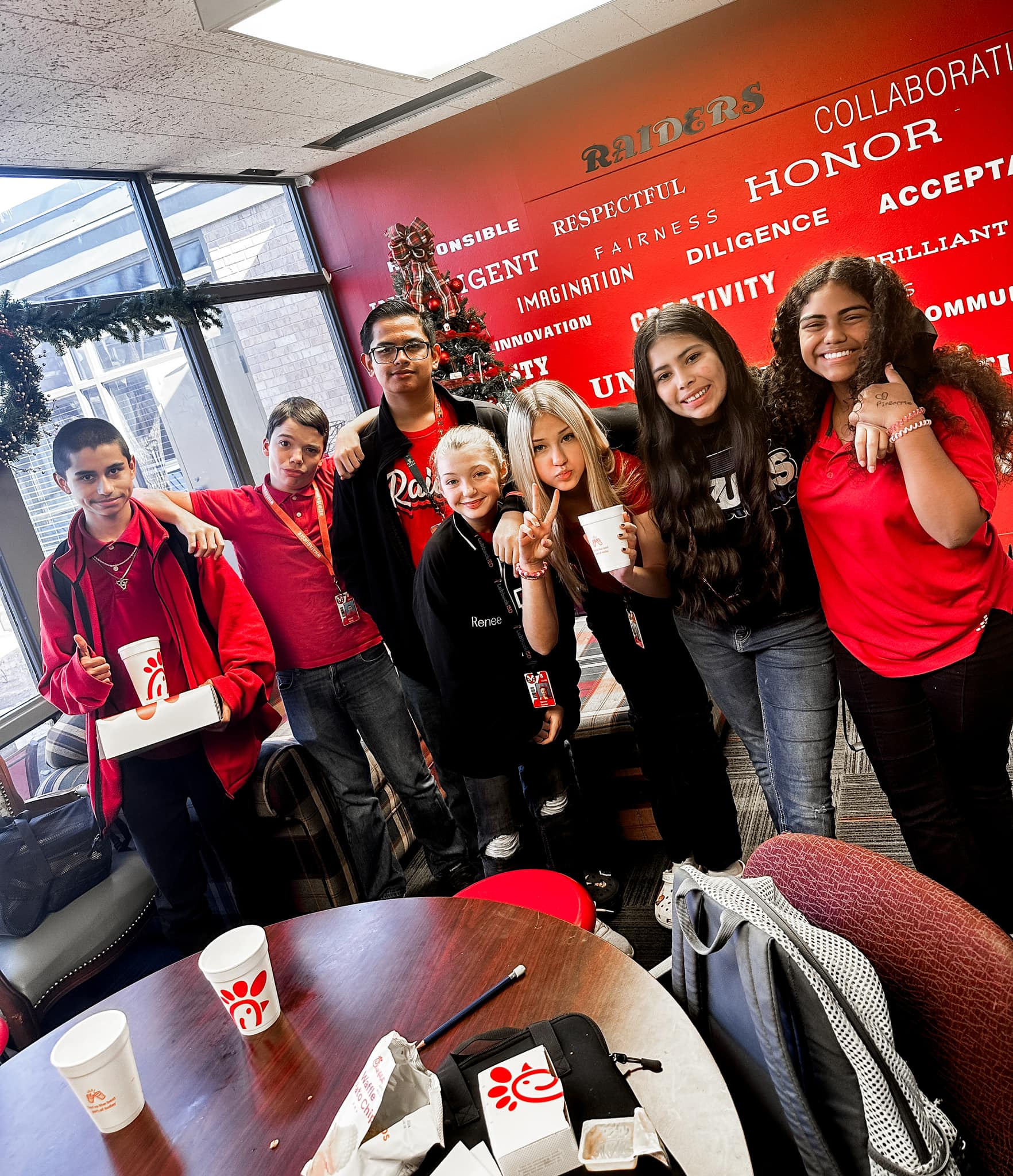
Texas Tech’s Center for Adolescent Resiliency provides students with social and emotional learning through leadership curriculum
For students navigating the challenges of adolescence, having a supportive space to develop leadership and social-emotional skills can be transformative. The Leadership Circles program, an initiative under the Center for Adolescent Resiliency at Texas Tech University, provides middle school students with just that.
Leadership Circles takes place during the school day and allows students to sharpen their leadership skills while focusing on social-emotional learning (SEL) competencies. CiCi Nunez, associate director for the United Future Leaders program in the center, emphasizes that the initiative helps students connect with peers, navigate personal challenges, and build confidence in their abilities.
“Our job really is to give them a space to show up as they are, to connect, and then hopefully take what they’re learning and practice that,” Nunez said. “They learn how to navigate the hard stuff—whether it’s home life, academics, or the transition into middle school.”
Building Trust to Meet a Need
When Leadership Circles was first introduced in 2022, it leveraged the trust that the United Future Leaders (UFL) program had already built in local schools through its after-school initiatives. While UFL traditionally worked with fifth and sixth graders in after-school programs, school counselors expressed a need for additional support during the school day. Post-pandemic, many students struggled with social skills, academic engagement, and emotional well-being.
Nunez recalls that when Leadership Circles was proposed, there was immediate interest but also uncertainty. One of the key supporters of the program was a veteran school counselor who had firsthand experience with UFL, both professionally and personally. Having seen the impact of UFL on her own children, she became an advocate for integrating Leadership Circles into the school day.
“It took a lot of trust,” she said. “They were used to after-school programs, but this was different. We worked closely with counselors to identify students who needed additional support—those who were struggling socially, academically, or behaviorally.”
Filling a Critical Gap
The timing of Leadership Circles was crucial. Post-pandemic, many students experienced learning disruptions, social isolation, and personal losses. Additionally, a high percentage of teachers at the participating school were in their first year of teaching, adding to the challenges of student engagement.
“There was a sense of motivation among the staff imbued by the current culture,” Nunez said. “Students had fallen behind not just academically but socially and emotionally. We had eighth graders who missed key transitional years, and the lack of rites of passage and normal school experiences contributed to disengagement and disciplinary issues.”
Leadership Circles helps students develop the tools to communicate effectively with their teachers, express their needs, and build resilience. By focusing on SEL alongside leadership development, the program fosters personal growth that translates into academic and social success.

Growth and Future Aspirations
Currently, Leadership Circles operates in one school within Lubbock ISD, a strategic decision to prioritize depth over expansion. However, the program’s success has led to interest from other districts and organizations. Through a partnership with Communities in Schools of the South Plains, site coordinators are being trained to implement Leadership Circles in additional schools.
“The goal isn’t just to expand but to improve the quality of the partnerships we have,” Nunez said. “We want to make sure the program is as impactful as possible before scaling up.”
Students who have participated in Leadership Circles are already asking for its expansion into high school. Nunez hopes to develop a high school edition of the program, allowing students to continue building on their leadership and SEL skills.
“I have kids who tell me, ‘You should be doing this in high school,’” Nunez said. “It’s clear that the need doesn’t stop in middle school.”
Since 2023, 212 middle school students have participated in the Leadership Circles program. Today Nunez says they are just shy of connecting with 300 students.
Additionally, Leadership Circles is gaining national recognition. Next month, Nunez will present at the National Youth Advocacy and Resilience Conference in Georgia, sharing the program’s impact and its potential for replication in other communities.
A Lasting Impact
For students, teachers, and administrators alike, Leadership Circles has proven to be a valuable resource in fostering personal growth and school-wide resilience. By meeting students where they are and providing a space for leadership development within the school day, the program is shaping future leaders in a way that is both meaningful and lasting.
As Leadership Circles continues to evolve, one thing remains clear: investing in students' social and emotional development is just as crucial as their academic success.
